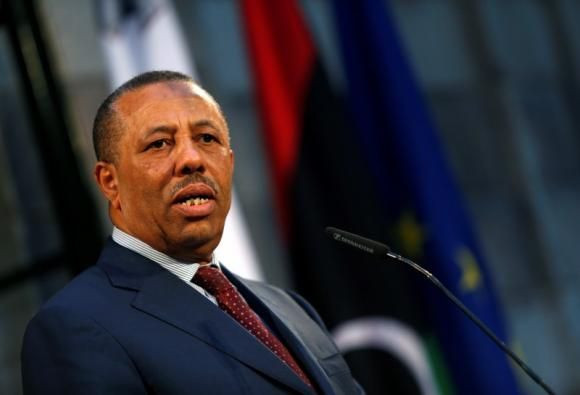Libya Now Has Two State News Agencies As Disorder Deepens

(Reuters) - Libya's internationally recognised government said on Monday it would launch a new state news agency to replace the one seized by armed factions that have set up a parallel government.
Three years after rebels overthrew Muammar Gaddafi, the major oil-producing state is slipping towards anarchy. It has had two governments and parliaments since former insurgents from the western city of Misrata took over the capital Tripoli in August, naming their own prime minister and forcing the formally constituted government to move 1,000 km (65 miles) to the east.
The new Tripoli rulers have appropriated several ministries and state television, cementing their grip even though the United Nations and Western powers recognise only Prime Minister Abdullah al-Thinni's administration, now based in Bayda.
To regain some semblance of authority, Thinni's government will set up a new state agency called LANA, the same name as before, in Bayda, its head Mahmoud al-Ferjani told Reuters by telephone from Bayda.
"LANA will launch a new temporary website to publish local and government news because LANA's original headquarters are controlled by militias," said Ferjani.
Last month, the United Nations started a dialogue between the elected House of Representatives, which also works out of the east, and Misrata members who have boycotted its sessions.
The talks have not taken in armed factions from Misrata or a rival militia allied to the western city of Zintan who battled Misrata forces in Tripoli for more than a month over the summer.
But diplomats hope that since Misrata members from the house are indirectly linked to a rival parliament in Tripoli, the talks will start a broader political dialogue, not just about the House of Representatives.
Western powers and Libya's neighbours worry that the North African country will become a failed state or plunge into civil war as former rebels who helped oust veteran dictator Gaddafi in 2011 now fight for control and a share of vast oil reserves.
The disorder in Tripoli and elsewhere in the large North African desert country has been compounded by a separate conflict in the main eastern city Benghazi where armed forces commanded by a former general are fighting Islamist militias.
In a sign of the Misrata-led parallel government tightening its grip on Tripoli state bodies, its economy minister met with senior staff in his ministry to debate economic policy, according to the Tripoli-controlled LANA news website.
© Copyright IBTimes 2024. All rights reserved.







